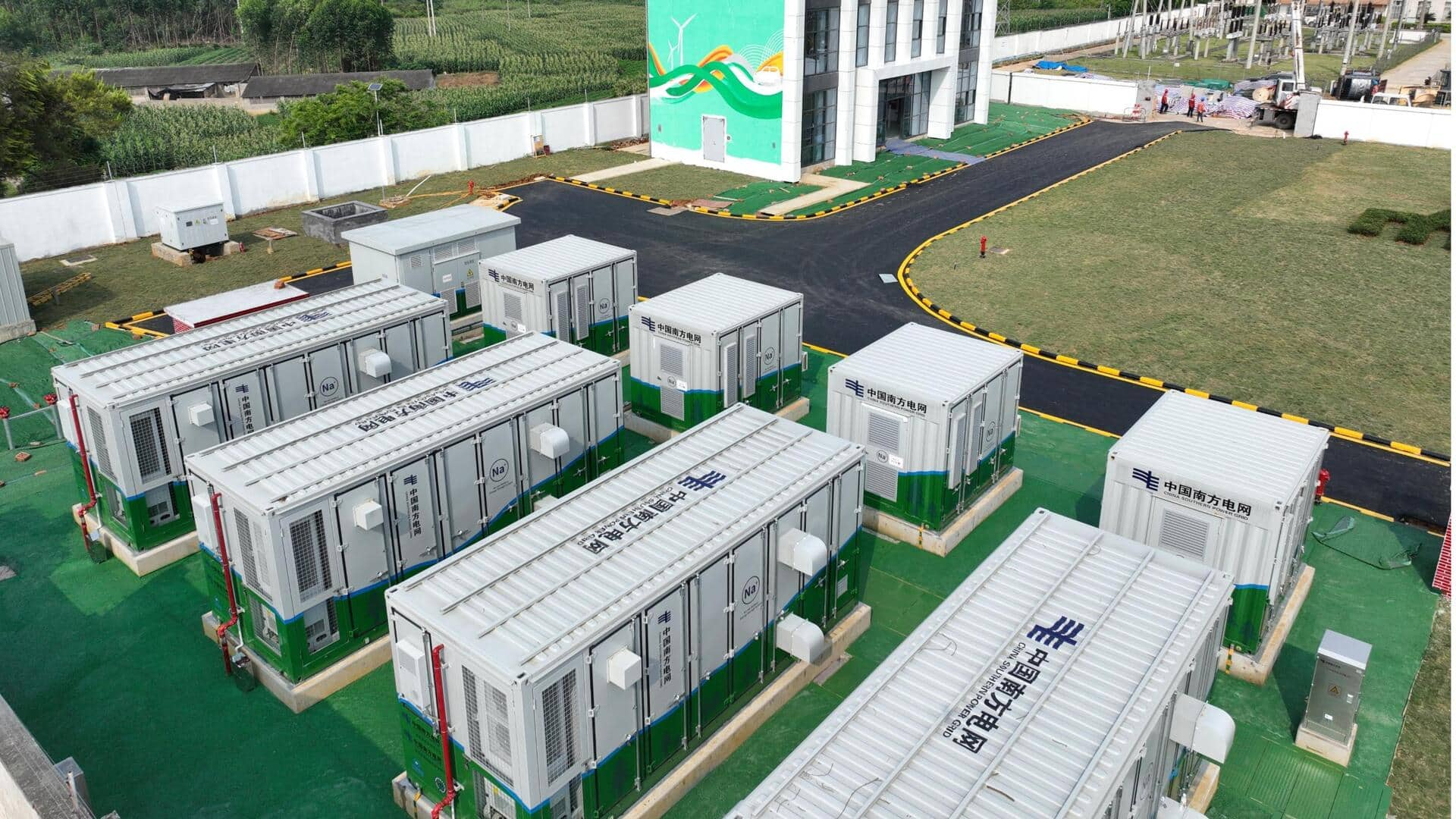
China launches sodium-ion battery energy storage station: Here's why
What's the story
China has launched its debut large-scale sodium-ion battery energy storage station, marking a significant milestone in the clean-energy industry. The station is situated in Nanning of Guangxi autonomous region in southern China. This development presents a potential alternative to lithium batteries, which are heavily dependent on resources. According to China Southern Power Grid, the initial storage capacity of the station is 10MWh, with an anticipated increase to 100MWh upon project completion.
Clean energy
Battery station's potential impact on renewable energy
The fully developed project could generate 73,000MWh of renewable energy annually, enough to meet the energy demands of 35,000 households. This output would also reduce carbon dioxide emissions by 50,000 tons each year, as reported by the state-owned firm. A manager at the Guangxi branch of China Southern Power Grid, Gao Like, stated in an interview with China Central Television that "the energy conversion efficiency of this sodium-ion battery energy storage system is over 92%."
Transition
China's shift to cleaner energy sources
Energy storage systems are crucial as the world moves toward cleaner energy sources like wind and solar power. These systems improve the flexibility as well as reliability of power grids, facilitating the expansion of renewable energy. As of end-March, China's installed capacity for new-type energy storage systems had touched 77,680MWh or 35.3 gigawatts—an increase of over 210% from a year ago—according to the National Energy Administration.
Battery evolution
Sodium-ion batteries: A promising alternative
Despite dominating the international lithium-ion battery supply chain, China relies heavily on imported battery materials like lithium and cobalt. Sodium-ion batteries are emerging as a promising alternative due to their abundance and low costs. They also perform better at low temperatures and charge faster. Global battery giants such as Tesla's supplier Contemporary Amperex Technology, and Japan's Panasonic are exploring the use of sodium-ion batteries for various applications, including electric vehicles and electrical grid storage.
Economic impact
Cost reduction potential of sodium-ion batteries
Chen Man, a senior engineer at China Southern Power Grid, stated that, "once sodium-ion battery energy storage enters the stage of large-scale development, its cost can be reduced by 20 to 30%." This cost reduction can be achieved through improvements in the sodium-ion battery's structure, manufacturing process, material utilization, and cycle life. This development could significantly impact the clean-energy industry, by making renewable energy storage more affordable and accessible.